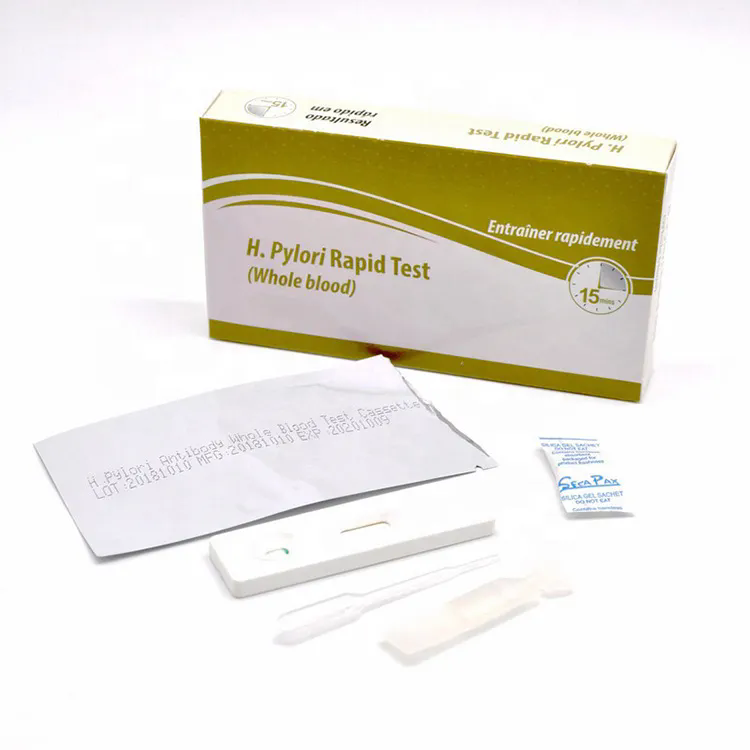Understanding Digestive Tract Tests: What You Need to Know
2024-10-09
The digestive tract plays a crucial role in our overall health, responsible for breaking down food, absorbing nutrients, and eliminating waste. However, when digestive issues arise, they can lead to discomfort and a range of health problems. Digestive tract tests are essential tools that help healthcare professionals diagnose conditions, monitor progress, and guide treatment plans. In this blog post, we'll explore the various types of digestive tract tests, their importance, and what you can expect if you need to undergo one.
What Are Digestive Tract Tests?
Digestive tract tests are medical examinations that assess the function and health of your gastrointestinal (GI) system. These tests can identify problems such as inflammation, infections, blockages, or abnormalities in the digestive organs, including the esophagus, stomach, small intestine, large intestine, and rectum.
Common Types of Digestive Tract Tests
1. Endoscopy
Endoscopy is a minimally invasive procedure that allows doctors to visualize the inside of the digestive tract using a thin, flexible tube with a camera (endoscope). It can be used to examine the esophagus, stomach, and upper part of the small intestine (esophagogastroduodenoscopy or EGD) or the colon (colonoscopy). Endoscopy can help diagnose conditions like GERD, ulcers, Crohn's disease, and colorectal cancer.
2. Barium Swallow and Barium Enema
Barium swallow involves ingesting a liquid containing barium, which coats the lining of the esophagus and stomach, making them visible on X-rays. This test helps evaluate swallowing difficulties, reflux, or structural abnormalities. A barium enema, on the other hand, involves introducing barium into the rectum to visualize the colon and rectum on X-ray, aiding in the diagnosis of conditions such as diverticulitis or polyps.
3. CT and MRI Scans
Advanced imaging techniques like computed tomography (CT) scans and magnetic resonance imaging (MRI) can provide detailed images of the abdominal organs. These tests can help detect tumors, abscesses, and other abnormalities in the digestive tract.
4. Stool Tests
Stool tests are non-invasive and involve analyzing a sample of your stool for various factors, including the presence of blood, pathogens, and undigested food. These tests can help diagnose infections, malabsorption issues, and gastrointestinal bleeding.
5. Breath Tests
Breath tests, such as the hydrogen breath test, are used to assess how well your body digests certain carbohydrates. These tests can help diagnose conditions like lactose intolerance or small intestinal bacterial overgrowth (SIBO).
Why Are Digestive Tract Tests Important?
Digestive tract tests are vital for several reasons:
- Diagnosis: They help identify the cause of digestive symptoms like pain, bloating, diarrhea, or constipation.
- Monitoring: For individuals with chronic digestive conditions, tests can monitor the progression of the disease and the effectiveness of treatments.
- Early Detection: Some tests can detect precursors to serious conditions, such as polyps in the colon, allowing for early intervention and prevention.
Preparing for Digestive Tract Tests
Preparation for digestive tract tests can vary depending on the type of test being performed. Here are some common preparations:
- Dietary Restrictions: Some tests may require dietary changes or fasting for a specific period before the test.
- Medication Adjustments: Your healthcare provider may instruct you to stop certain medications before the test, especially blood thinners or medications affecting digestion.
- Follow Instructions: Always follow the specific instructions given by your healthcare provider to ensure accurate results.
Conclusion
Digestive tract tests are invaluable tools for diagnosing and managing gastrointestinal issues. If you experience persistent digestive symptoms, consult a healthcare professional who can recommend appropriate tests to get to the root of the problem. By understanding the various tests available and what to expect, you can take an active role in your digestive health and overall well-being. Remember, early detection and intervention can make a significant difference in your treatment and recovery.



